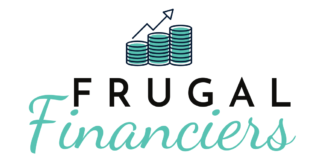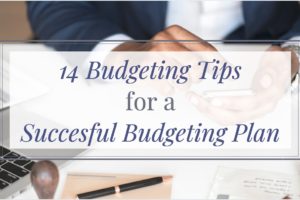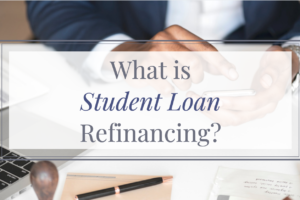If you’ve landed on this page it likely means that you’ve received student loans or you are thinking about using student loans to fund your education.
Student loans can be great, offering many of us who don’t have the financial means the chance to pursue an education.
And as a
But, student loans can also be horrible, suffocating many of us as we try to repay the loans we thought would secure us a better future.
Unfortunately, due to a lack of personal finance education in high school, we usually don’t know exactly what we’re getting into when we take out the loans.
We just think, it’s fine and everyone else is doing it so why shouldn’t I?
And, there are plenty of cases where people have received student loans, obtained a great education and secured a high-paying job that allowed them to repay the loans.
But, there are plenty of ways where you can cause yourself financial harm with student loans.
This post is both for those considering to take out loans as well as those that already have received student loans.
Here are some of the common student loan mistakes:
- Funding an education that will not lead to enough earnings to repay the loans
- Not knowing or understanding your loan details
- Being on the wrong repayment plan or paying too little
- Refinancing federal loans and losing federal protections
- Assuming your loans will be forgiven
- Not comparing paying off student loans versus investing
- Not taking your loans into consideration when making a decision
- Taking out more money than you need
- Consolidation doesn’t equal refinancing
And, if you committed one the mistakes, do not feel bad or ashamed.
We’ve all made financial mistakes and the only way to move forward is to learn from them, do not commit the same mistakes, and create a plan of action to improve your finances.
Just because you made a mistake with your student loans or even your general finances doesn’t mean that you cannot fix it.
Let’s take a closer look at some of the common student loan mistakes.
Funding an Education That Will Not Lead to Enough Money to Repay the Loans
We wanted to put this first because it’s probably the most common mistake and one of the hardest to avoid.
It’s also the most difficult to grasp when we’re fresh out of high school.
First off, at a relatively young age you may have no clue what you want to do for work.
Hell, you might not even know what you’re good at or what you enjoy doing.
Add in the fact that most people switch majors a few times while at college and you’ll likely have no idea if you’ll be able to repay your student loans.
For example, you go into college expecting to become a mechanical engineer and you leave with a degree in sports medicine.
When you received those loans you totally thought you could cover the payments when you became an engineer but now upon leaving you’re not sure.
You might even need to pursue further education (and more loans) just to find a job in that field.
That’s why it’s so difficult to avoid.
College and your early-20s is such a big time for you to learn about your life that your plans could change multiple times.
So, what can you do?
There are few options.
Plan to double major
More work? Yes, more work.
But, why?
It essentially sets a minimum of the type of job that you can receive after college.
Choose an area of study where you are interested in and choose another area where jobs are plentiful like business or computer engineering.
There is no worse feeling than getting out of college and being unable to find a job much less one that pays you well enough to repay your student loans.
Attend Community College Until You’re Sure About What You Want to Do
If you’re unsure about what you want to do, you can attend community college to start pursuing a degree while remaining cost conscious.
You’ll still be able to learn and grow but you’ll also be paying less than what you would at a university.
Hopefully, this will give you some time and experience to learn what you want to do.
Just be careful, universities are notorious for not accepting all community college courses so you want to make sure everything you’re doing will transfer over.
Spend Time Meeting with People in the Areas of Interest
If you want to learn about different careers and fields of work, go find people and ask them about it.
Find out what they love and what they hate.
You should be able to get a feeling if it’s going to be an area that you’ll want to spend 10 to 20 to even 30 or 40 years working for
At the end of the day, this is a hard mistake to avoid but it’s good to be thinking about.
It might not even be a mistake but an inevitability.
But, there are steps that you can take so that you don’t face significant financial pain.
And, if you made this “mistake” it’s okay.
Mr. Frugal Financier made this mistake by switching career paths.
He w
If you’ve already made the mistake, you have to
It may require some extreme frugalness to pay off the debt.
Or, it may even require going back to school and pursuing a new field of work.
You need to create a financial plan for yourself and see if it will be feasible to accomplish.
If not, it may mean searching for new job opportunities and how you’re going to obtain them.
And, even though you made this mistake once, it’s now about not making the same mistake again.
Learn from your experience and how can take advantage of what you know now versus what you knew in your late
Not Knowing and Understanding Your Loan Details
This is probably the biggest financial decision you’ve made at this point in your life.
The last financial decision was probably, where should I open a bank account?
It’s quite the leap to go from opening a bank account to taking out thousands of dollars to fund an education in hopes of obtaining a job that will repay those dollars.
So, you should know as much as possible about your loan details.
Here are some of the main details to know.
How Much You O we
This seems obvious but you’d be surprise how many people don’t know how much they owe.
With most financial information going digital, we no longer receive paper statements meaning that you have to login into your account to see new information.
Additionally, as you receive student loans each year your total amount goes up plus any accrued interest that you do not pay off.
It’s good to keep tabs on how much you owe as you’re receiving loans and as you’re paying them off.
Because you’re paying interest on the loans, you may pay $500 each month but the balance only goes down by $250 because the rest goes to the interest.
Interest Rate
Another important piece of information you should know is the interest rate on each one of your loans.
Since you apply for and receive student loans each year you are in college, the interest rate can be different on different loans.
Additionally, different types of student loans have different interest rates.
This information can also be helpful if you’re choosing between investing money or paying down debt.
Why is that?
When you invest you are essentially expecting a percentage return.
So, if you buy a 1-year bond with a 2.5% yield, you expect that for every $100 you invest you’ll receive $2.50 of interest payments.
It is similar with a loan too.
If you pay off a loan with a 3% interest rate, over the next year you will save $3.00 for every $100 that you pay off.
One way you’re creating new money and the other way you’re are saving money.
But, for
Servicer
Your servicer is the financial institution that handles your loan.
The institution that gives you the loan is the originator.
For federal loans, the federal government originates the loan but then has another institution service the loan.
Servicing is basically receiving payments and handling all of the paperwork and information associated with the loan.
Unfortunately, not all servicers are created equally.
There are horror stories shared on the internet of
You want to be aware of who your servicer is so that you know where to repay your loans and you also want to know its reputation.
If it has a bad reputation, you need to be sure that you’re checking your account and ensuring that everything is correct.
Subsidized vs Unsubsidized
It is important to know if your loans are subsidized or unsubsidized because it will affect how much you have to pay in the long run.
A subsidized loan is a federal loan that has interest accrue but the federal government pays off this interest while you are still enrolled in college.
An unsubsidized loan is the opposite, meaning you’re responsible for paying off the interest of the loan once it is originated.
You are not required to pay the interest until after you’re no longer enrolled in college along with the balance.
But, this interest accrues and is added onto the balance of the loan.
Here’s and example of why this can wreak havoc on your finances:
You take out a student loan for $10,000 unsubsidized at a 5% interest rate.
To keep math simple, it accrues $500 each year you’re a college – four years.
So, now when you leave college and have to start repaying your actual balance will be $12,000.
What’s even worse, once you must begin repaying your student loans, that interest becomes capitalized.
That means that you have to pay interest on the full $12,000. Not just the
Federal vs Private
Do you have student loans through the federal government or through a private institution like a bank?
If you have federal student loans then the details are going to be the same across all federal loans.
But, private loans differ between the institution funding the loan.
With a federal loan, you can defer payment until you leave school.
With a private loan you may or may not have this feature.
Interest rates for federal loans are fixed but a private loan can have a fixed or variable interest rate.
A fixed interest rate is fixed or doesn’t move for the life of the loan while a variable rate can fluctuate up or down.
Some federal loans are subsidized while private loans are typically not subsidized.
Federal loans have postponement and payment plans if you are having difficulty paying your loans while if you have private loans, you’ll have to work with the bank to receive these types of features.
Federal loans do not have prepayment penalties while private loans may have penalties.
If you have private student loans, it is important to know what the outcome is under certain circumstances such as:
- A rising rate environment (variable interest rate)
- You have
difficultly repaying loans (postponement or lower payment) - You want to pay down loans early (repayment penalties)
For more information, check out Federal Student Aid’s post on the differences between federal and private student loans.
Bankruptcy
It can be very difficult to discharge student loans through bankruptcy.
While it isn’t impossible, it is much more difficult than other forms of debt and will still make it difficult to access credit in the future.
Being on The Wrong Repayment Plan or Paying Too Little
You want to check and see how much of your monthly payment is going towards interest each month.
Early in the loan, you can expect most of the payment to go towards interest and some to go to the balance.
But, there are instances where your payment may not be even covering the interest accrued each month.
If you are an income-driven repayment plan your required monthly payment may be less than the interest accruing.
If this is occurring, then the interest that is accruing is being added on to the balance.
Not only are you not reducing the balance but the balance is growing!
And, on top of that, even more interest is accruing on that growing balance.
That means that the amount of interest is increasing which then adds on even more to the balance.
It’s a cycle of not paying off the interest so it’s added onto the balance which is used to calculate the next interest payment.
Until you start paying off at least the interest, your balance and interest accrued will
Refinancing Federal Loans and Losing Protections
Refinancing can be a great way to reduce the amount of interest you pay by reducing the interest rate.
That can be a great way to pay off your student debt sooner or at least relieve some of the pressure of paying off your student loans quickly.
But, you cannot refinance federal student loans into other federal student loans.
Refinancing involves taking out a new loan that pays off and replaces your old loans.
So, since you cannot take out new federal loans to repay the old ones, you have to take out private loans to replace the old loans.
If your refinancing from federal to private, it means that you lose all of those protections and features from the federal loan unless offered by the private institution.
For more on refinancing, check out our post:
What is Student Loan Refinancing?
Assuming Your Loans Will Be Forgiven
Many people assume that their loans can be forgiven or simply hope that their loans will be forgiven.
But, making this assumption can be one of the biggest student loan mistakes.
First, the amount of student loans forgiven is next to almost none.
Check out this article from CNBC about how only 96 of 30,000 applicants received forgiveness of their student loans.
Second, for the common federal forgiveness plans you still have to make payments on your student loans.
For public service forgiveness, you have to make payments or 10 years and for income-driven forgiveness, you have to make payments for 20-25 years.
That means that you’ll be in student loan debt for up to 25 years or up to a one-third of your life before you student loan debt is gone.
Not Comparing Paying Off Student Loans Versus Investing
Returning to the example in the student loan mistake of not knowing the interest rates on your student loans, you may be making the mistake of investing when you could be paying down debt.
While investing in assets is how many people become wealthy and stay wealthy, you have to understand the tradeoff between investing and paying off debt.
When you pay off or pay down debt, you’ve created guaranteed savings.
There is future money saved that you will not have to spend on interest.
Meanwhile, investing and specifically investing in equity investments like public company stock or index funds has expected returns but not guaranteed returns.
An expected return is based on the historical returns of the same asset.
So, the S&P 500 has returned around 10% over the last hundred years so there is an expectation that it will continue to return around 10% on average.
But, that includes all of the times that it was up over 20% and down over 20%.
You must be aware of this when you’re deciding whether to pay down debt or invest you money.
It’s always a good idea to compare the money you’ll save by paying off student loan debt versus the expected return of your investments.
Not Taking Your Loans Into Consideration When Making Decisions
Once you’ve taken out loans, they are a part of your life and should be considered when making financial decisions.
This is similar to the student loan mistake of not considering your student loans when investing.
But, this applies to other financial decisions which may not represent a tradeoff.
When you’re deciding to take out more debt or how you spend your money, you need to consider how that will affect your ability to repay your student loans.
If taking a trip costs $2,500, that’s extra money that you’ll have to pay on those student loans.
Let’s say it takes you 3 full years to pay off that $2,500 and the interest rate is 5% on the loan.
Keeping the math simple, that’s roughly $375 extra that you’ll have to pay on those student loans in interest.
You definitely should take trips and enjoy life but also consider the full results of your decisions and how they will affect you financially.
Taking Out More Money Than You Need
Figuring out how much money you need is one of the hardest parts of accepting student loans.
That’s why it
Take out enough to cover tuition.
Check.
And, cover student expenses like fees and books.
Check … you think.
How much do books cost?
What about covering rent? And, food? Insurance?
And, all the other stuff in life that you’ve never had to pay for?
For a lot of us, it’s really difficult to forecast how much we need for college.
We don’t really know about rent, or food, or just living fresh out of our parents’ home.
So, you take out too much.
Does that mean you give it back?
You should, but probably not.
If you take out too much, try to repay it as soon as possible.
Consolidation Doesn’t Equal Refinancing
Believing consolidation is refinancing is another common student loan mistake.
Usually this mistake is made when trying to lower interest rates.
Consolidation is simply the process of combining all of your student loans into one loan at the weighted average interest rate.
Your overall interest rate does not change.
This is different from refinancing.
With
Many people think consolidation will reduce your interest rates.
But, it just combines all of your loans at the same weighted average interest rate.
Final Thoughts
There are a lot of student loan mistakes out there that everyone is making.
We’ve made them and we’ve learned from them.
So, don’t feel bad if you’ve made a mistake.
The best thing that you can do now is to correct the problem and not make the mistake again.





Leave a Reply
Your email is safe with us.
You must be logged in to post a comment.